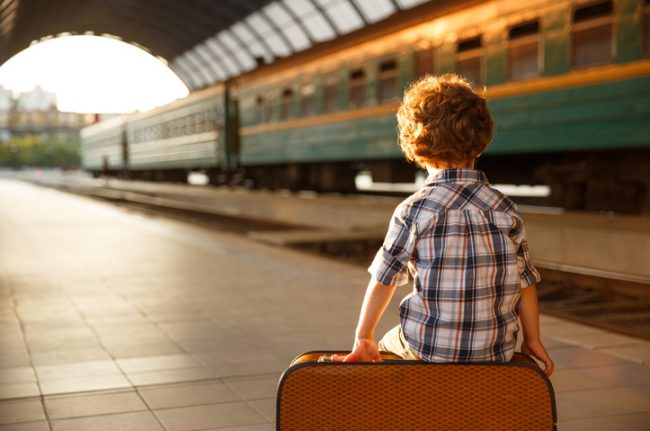For many families, traveling is more fraught than the cheerful Facebook posts suggest. Routines get thrown to the winds, and the stimulus of new places, new foods, new beds can cause even the most resilient families to feel slightly unhinged. This is all the more true for families with a child with Autism Spectrum Disorder (ASD), for whom structure and routine is a necessary part of self-regulation (I speak from experience).
These children tend to get overwhelmed by the sensory stimulus, struggle with the unknown and have a hard time managing the disappointment that comes from venturing into new territory. Not to mention the challenge for those with ASD of spontaneous social interactions that tend to accompany travel.
But to rule out travel does no one any favors. Travel may be especially important—and liberating—to children whose very existence feels threatened by the unpredictable. And you don’t want to feel like your child has taken your life hostage, and turned you and your family into permanent staycationers. With the right preparation, travel can be restored to its powerful role as a rite of passage. Here’s how.
Choose the best destination for your child
While you don’t always have to cater your trip to align with your child with autism’s preferences, try to meet your child halfway. If he doesn’t love hikes, throw in a baseball game, miniature golf or even his favorite lunch into the itinerary as well. Involving the whole family in the trip planning encourages buy-in, responsibility and ownership. If you can choose a destination that speaks to your child's interests, you will have a more enthusiastic adventurer on your hands.
At least be aware of your child's limitations—for example, a trip to the symphony, as culturally enriching as it is, maybe too long for someone who has no interest in classical music. Compromise gives you leverage. We took a trip to the Great Wolf Lodge in Colorado Springs and spent the day doing the water park and arcade. But the next day, we had already told the children in advance that we were going to visit the Garden of the Gods, a national park. My son was able to manage his disappointment over not going back to the water park for a second time because he knew the deal well in advance—and had already gotten many of his needs met.
Practice vacation scenarios in advance
Going over the possible scenarios in advance can give your child a glimpse into the wild card aspect of human experience. An anticipated museum may be closed, a concert gets rained out or other random factors can upset the plan. This teaches flexibility—the realization that several unplanned outcomes can occur—and resilience. The art of handling hitches with grace is a task we all face, whether we are on the spectrum or not.
Of course, there will be things that happen that you couldn't predict. My son was set to travel on a plane alone to Florida to visit his grandmother. We went through security and he was waiting to board, but because of thunderstorms in Florida, and the fact that he was an unaccompanied minor, the airline would not allow him to get on the delayed flight. Standard practice for minors, I was to find out, because of the elevated odds of delays and layovers. Still, this was a huge disappointment for my son, made worse because it didn’t even occur to us as a possibility.
Pack for relief
Since traveling can be such a sensory overload, make sure you pack things that offer your child relief. Her favorite stuffie, pillow, book, fidget toy and snacks are invaluable companions. A vacation is not the time to enforce a more formal wardrobe—make sure your child's clothes fit comfortably. Ask your child to help you pack, that way she can pick out the things that she likes and provide security.
Set a realistic pace
Work on a tentative itinerary with your family, and make sure he gets to choose some of the key attractions you visit. Sometimes your child with autism may be extremely motivated by the location. When we were in NYC, my son set a brutal pace, with the enthusiastic mission to cover as much ground as possible. Other times he drags his feet and lollygags.
Making sure to integrate breaks into the day, whether for your child, you, or other siblings, allows everyone to restore their reserves. Regardless of whom the break serves most, incorporating pauses into your day can help everyone absorb and attune to the immediate environment. Returning to your hotel room midday for some downtime, when possible, can help everyone recharge and gets a second wind.
Travel with your child on the spectrum may take a little extra thought, but the rewards more than compensate. Many children with autism have a photographic memory, so a trip becomes an indelible trove of experiences. Plus, travel lets you peek into—and appreciate—the way your child views the world. It lets everyone expand their horizons and step into a new perspective. It creates the conditions for surprising conversations to emerge. If you do it right, it’s a win-win, whether you find yourself grappling with disappointment or stretching your capacity for joy.
Any trip into uncharted territory lets you connect to yourself—and the those around you—in new ways. That’s the real journey. Whatever spectrum we are on, this is the journey we need to keep making.




